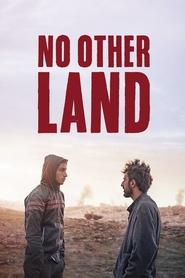Many factors coalesce to make No Other Land more than just an extended news 'package' about the illegal destruction of villages in the Palestinian West Bank. For one thing, Yuval's status as an Israeli citizen immediately complicates the 'oh dearism' that pervades pieces superficially similar to this, and the filmmakers include, however briefly and perhaps inadvertently, some criticism of their core assumptions and methodology.
However, two political limitations of No Other Land are that by focusing only on a handful of villages in a small geographic area over a couple of years (and eliding the systematic quality of Israel's occupation over approximately 75 years and 1000s of miles of territory, etc.) it permits the kind of response along the lines of "Yes, you know, I do think Israel is in the wrong in this particular case; they need to fix that." Moreover, the process that led to the film itself can quite easily be integrated into that pervasive worldview that permits states to have a history of 'getting it wrong' here and there, and even for those cases to be publicised and widely known, yet those very problems being publised is a kind of feature. After all, don't all of our history books contain immoral episodes in our states' pasts? What I'm getting at here is the sort of perspective where Erin Brockovich-like tales are not an inditement of a fundamentally immoral system and an utterly broken moral contract, but rather the very fact that an individual can and is crusading against it is somehow the system working correctly. (I suspect this partly informs the film's schizoid reception in Germany.) Naturally the idea that the destruction of Basel's village is a wrong that will one day be righted is completely for the birds. I bring this up not because the lack of a broader perspective is a 'fault' of the filmmakers, but it is worth considering seriously in light of the documentary's (somewhat qualified) success in the West.
The saddest scenes are kept to the last third of this film. Starting with the demolition of the school with its pupils looking on from a distance, No Other Land then shows the Israeli's pouring concrete directly down a well, following that with a literal shot fired from a Israeli (citizen) settler into the chest of Basel's cousin.
But another level of methodological misery is added, however, when Yuval and Basel late rsit quietly and attest to each other in their belief in the axiom of 'raising awareness' where "somebody watches something; they're touched" which then effects change in turn. How they can still believe this in 2024 is quite beyond me, although there is no doubt there is a significant degree of protective self-delusion involved, itself underscored with examples where a media story really has indeed made some change, however insubstantial or cynical. Indeed, watching their faces and the tone of their voices more carefully, they seem to capture some of their own hesitation and even self-disciplining in their avowal to each other of this shibboleth. Their impotence matches the impotence of the viewer, and we cannot even give them the hope that would let these people languishing in the West Bank and Gaza at least suffer with some modicum of dignity.

